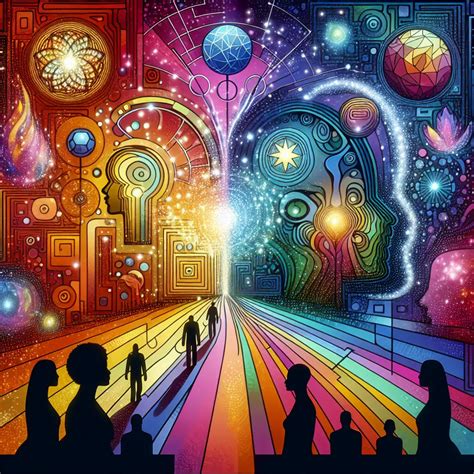Psychedelic drugs, once banished to the fringes of scientific inquiry, are now at the forefront of a healthcare revolution, challenging the very foundations of traditional clinical research. The intricacies of the human mind and the profound experiences induced by substances like MDMA, psilocybin, and DMT are posing significant challenges to the traditional gold standard of randomized controlled trials (RCTs). Despite the breakthroughs that psychedelics promise, especially in mental health treatment, their unique nature makes it difficult to apply conventional double-blind methodologies. This dichotomy is creating a rift within the scientific community, pushing researchers to rethink how we evaluate drug efficacy.
During the 1940s and 50s, there was great promise in the potential of psychedelics for mental health treatment. However, global prohibition soon followed the U.S. in criminalizing these substances. Now, with a resurgence in psychedelic research, the possibilities are staggering, yet bittersweet. Decades of progress were lost, and we are only beginning to scratch the surface of understanding the mind and these powerful chemicals. MDMA-assisted therapy, for instance, has shown significant promise in treating severe PTSD, yet the question remains – how do we study these substances effectively when the psychedelic experience is so distinctive that participants can easily determine if they’re receiving a placebo?
One notable example highlighting this struggle is the clinical research surrounding DMT, a compound known for inducing highly intense and otherworldly experiences. In studies termed DMTx, where participants were subjected to extended DMT sessions, consistent reports emerged of encountering similar external entities, seemingly intelligent beings. These experiences appeared to aid in processing trauma and revealed insights into the brain’s world modeling. The challenge here is balancing subjective experiences against objective scientific measurement. Critics argue that claims of encountering external entities need stringent scientific proof, yet the profound nature of these experiences cannot be dismissed purely as hallucinations without significant introspection and further study.
The intersection of psychedelics and modern medicine is not without its detractors. For instance, some skeptics argue that the brain’s ability to produce abnormal experiences from abnormal inputs, such as extreme stress or intoxication, is well-documented, and that the same logic can be applied to psychedelic-induced experiences. Others maintain a more cautious approach, urging that without concrete evidence, the possibility of external entities should not be entirely dismissed. As public and scientific interest grows, it becomes increasingly apparent that studying psychedelics may require methodologies as unconventional as the substances themselves.
The placebo effect further complicates psychedelic research. For conditions linked to our psyche, including depression, anxiety, and PTSD, the placebo response rate is astoundingly high. This is not merely an artifact of study design but hints at the powerful interplay between the mind and these drugs. Modern drug trials aim to precisely cleave a drug’s efficacy from psychological factors. However, this becomes exceptionally tricky when the psychological factor IS the medicine, as might be the case with entheogenic experiences. Double-blind RCTs may strip away key components of the psychedelic experience, potentially underestimating their therapeutic value.
There is a growing need for innovative research methodologies that acknowledge the subjective nature of psychedelic experiences while maintaining rigorous scientific standards. One possibility is designing trials that accept and measure the subjective components of the psychedelic experience. Enlisting AI and machine learning to analyze massive datasets could offer new insights and predictions for individual responses to treatments. As psychedelic research continues to unfold, it is crucial that we balance scientific skepticism with an open mind towards the profound potential these substances may hold. The integration of psychedelics into mainstream medicine will likely herald not just new treatments but also a new paradigm in understanding the mind and its connection to healing.


Leave a Reply